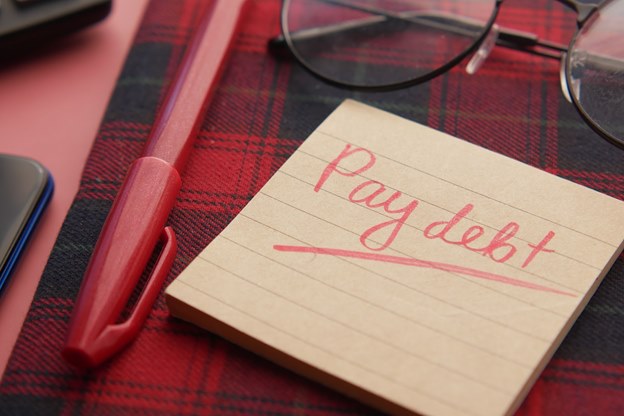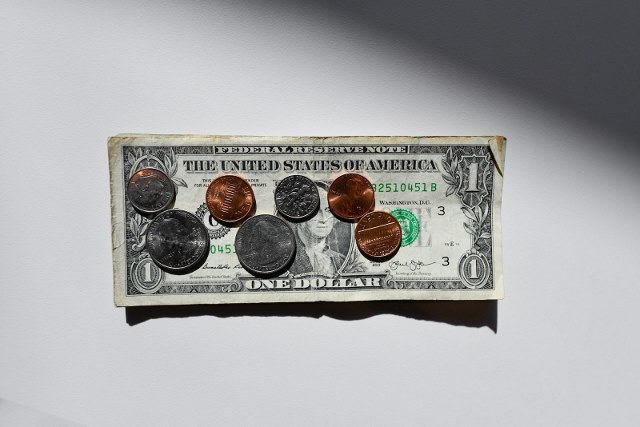When debt feels like a mountain you’ll never be able to scale, an email, call, ad, or website offering to help pay off your debts for a fraction of the amount owed might be very appealing. But tread carefully; some so-called debt reduction services are fraudulent debt schemes that can get you further in the red. So what are debt settlement scams?
However, there are credible businesses and organizations that can guide you on the path to a debt-free life. Budgeting advice, creditor negotiations, and debt repayment plans are some services these professionals can provide over several months or years.
On the contrary, con artists promise false “guarantees” to help eliminate your debts fast and cheaply; more importantly, they demand payment before they provide any assistance.
This article dives into debate settlement scans and covers some red flags you should look out for so that you may avoid falling victim.
What Are Debt Settlement Scams?

According to the FTC, debt settlement scams are fraudulent promises any individual or organization makes to help debtors legally and quickly get their clients from debt. They demand payment before fulfilling this promise which makes their operations illegal. This also serves as the primary red flag of debt relief scams.
What’s the Difference Between a Legit Debt Relief Firm and Scam?
The primary difference between genuine debt relief services and scammers is that legit companies that can help you get out of debt will charge you. However, they only demand payment if they help you.
Many will disappear with your payments, while others will put you in a stalemate while you continue to owe money on outstanding debts. In 2021, the FTC got more consumer reports about credit and debt counseling than in the past two years.
Fraudsters prey on people’s need to escape the crushing weight of their $1.6 trillion in outstanding student loan debt by charging them up-front and monthly fees under the pretense that they will enroll them in government debt-forgiveness programs.
Also, The Federal Communications Commission (FCC) revealed that fraudulent robocalls that advertise student loan repayment relief and other debt solutions have increased due to the economic worry created by the COVID-19 pandemic.
Thus before anyone begins using a particular strategy to dig themselves out of debt, the commission advises them to carefully examine the variety of options available to them and understand the red flags.
Red Flags of a Debt Settlement Scam

Knowing the warning signs of a debt settlement scam can save you from even worse financial hardship if you’re currently in a precarious financial situation. Among the most prominent warning signs are:
1. Robocalls
Robocalls, often known as prerecorded phone messages, are typical signs of different scams. This is particularly true if it accompanies an impromptu proposal of debt relief.
2. Cash Paid Upfront
If a debt reduction entity demands an up-front payment of any kind, this is an obvious red flag that the company is a fraud. It is against the law for debt settlement organizations to solicit advance payments from customers.
3. Guarantee of Outcomes
Any promises of particular outcomes, such as getting a specific credit score, should raise red flags. The settlement of debts is a risky endeavor, and you can’t be 100% sure that it will work.
4. Using Phrases like “government programs” or “legal language.”
Fraudsters will say or do whatever they can to appear more trustworthy, including stating they are affiliated with the government. Their assertions could be less factual, even though they may refer to legal loopholes or government initiatives.
5. Too Many Guarantees

Even trustworthy organizations that assist you with your debt cannot guarantee success or eliminate calls from debt collectors or attorneys. Once you start hearing a lot of guarantees, your alarms should go off.
6. Enrollment Offers Without First Reviewing Paperwork
Before accepting to partner with you, a reputable debt firm should thoroughly inquire into your situation and take the time needed. If any company offers to help you but fails to look at your finances, you should stop and think twice.
7. Little Discussion of the Financial Implications
Since debt settlement tends to have substantial negative impacts on credit scores, it is frequently considered a final option before declaring bankruptcy. As such, any legit organization will put forward the short and long-term effects of their debt relief strategies.
In other words, debt settlement isn’t always the most beneficial option, regardless of the legitimacy of the debt settlement firm you wish to use for the entire procedure. When you fail to make payments throughout the debt settlement process, your credit score is the first to suffer the consequences, and it frequently comes with high risks and little to no rewards.
Preventing Debt Settlement Scam: Steps to Take
In addition to becoming familiar with the telltale symptoms of a con artist posing as a debt settlement professional, there are also some preventative measures you should adopt. Some of these are:
1. Find an Honest, Affordable Credit Counselor
Consult an established and trustworthy non-profit credit counselor if you have trouble repaying your debts. They offer the assistance you need to implement a debt management plan to streamline your payments into one affordable monthly installment. You will also get credible answers to pressing personal finance questions like “Should I invest or pay off my debt?”
2. Avoid Responding to Cold Calls or Emails.
No one has any right to contact you with debt settlement if you haven’t initiated contact in any way. You must always remain aware that phishers frequently use these strategies in their scams.
3. Make Payment Arrangements With Your Creditors Directly
Debt consolidation companies and credit counseling services are not always necessary. However, they can facilitate your effort to negotiate payment terms with your creditors to finish repaying your debts in full. This way, you protect yourself from the possibility of being a victim of fraud.
4. Only Use Standard Payment Methods
It is essential that you use a mode of payment that you are comfortable with whenever you make a payment to a credit consultant for assistance with debt relief. Credit card payments, cheques, and Internet payment processors are a few examples of these methods.
You should avoid companies that insist on getting payment with gift cards or through P2P apps like Zelle at all costs.
5. Contact the Right Authorities
The U.S. Consumer Financial Protection Bureau provides information and guidance on credit counseling, debt settlement, and other options to escape financial obligations. This is the primary source for debt relief advice and information for the general public on available alternatives.
A victim’s situation is never their own doing. However, there are several precautions you may use to safeguard yourself from falling victim to fraud. Similar to how locking your door at night may prevent you from intruders, developing these habits will become your primary line of defense against your debt settlement scammers.
Understand Debt Validation Programs

The concept of validating debts is not new; it has been around for over a decade and has recently started making the news.
Collection agencies must keep thorough and accurate records following consumer protection legislation. Debt validation, also known as “debt verification,” is the right of a consumer to dispute a debt.
If a debt collector cannot prove they have the right to pursue collection on a particular account, the debt is no longer collectible. Debt invalidation firms facilitate consumer convenience by consolidating various bills into manageable monthly payments.
Who can take advantage of debt invalidation services?
Debt validation may be the cheapest option for people with unsecured debt in any state, including New York, Pennsylvania, and California. Until 2021, only a select number of states could participate in the debt validation program due to legal barriers. To be eligible, your unsecured debt must be at least $7,500.
What kind of debt qualifies for validation?
Credit card debt and hospital bills are only two examples of the many different kinds of unsecured debt that can be challenged and ultimately canceled. Although credit card debt is the most common reason for enrolling in a validation program, only some accounts are suitable for enrollment. For instance, a Discover credit card might not meet the requirements.
It’s recommended to enlist Discover credit cards in an attorney-based debt settlement plan with a built-in legal defense. Enrolling in a debt management program can settle your debts for less than the total balance owed on each account.
You may call an IAPDA Certified Counselor for the quickest and easiest approach to determine which of your potential debt reduction options would be most beneficial to you. This ensures a professional will assist you by creating a personalized strategy to resolve your financial issues and achieve financial freedom.
Summary
If you ever suspect you’re the victim of a debt relief scam, you can report the issue to the Federal Trade Commission online.
Even with legitimate businesses, debt settlement entails significant risk. Many companies recommend their customers stop making debt payments in the hopes that their creditors will eventually agree to a settlement. But this may not always have the desired result.
Therefore, you should always be cautious when dealing with any company that offers debt relief services. Most importantly, ensure they don’t exhibit any warning signs listed in the article above.


